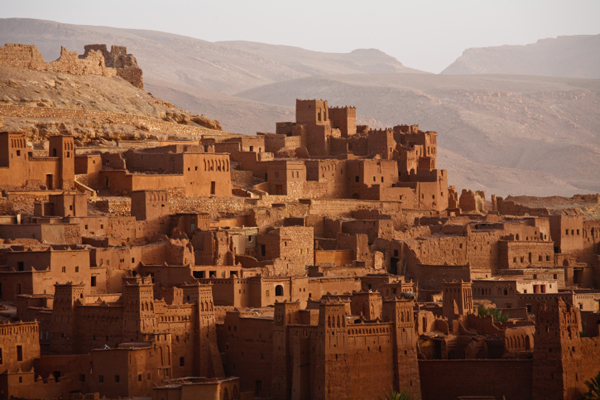Dialogue to Morocco challenges preexisting perceptions

Morocco may be a predominantly Muslim country, but its historic relationship with Europe—primarily France, which colonized it from 1912 until 1956—and its location in Africa make it a nation with a culture that’s far from monolithic.
“Morocco presents an opportunity for our students to see what it’s like to live in a Muslim country, and then to take it a step forward and get to know the people who live there,” said Peter Fraunholtz, a lecturer in the history department who leads an annual Dialogue of Civilizations program in Morocco.
“It’s an opportunity to find out firsthand what life is like for Moroccans and for the students to challenge their ideas of what Islam is like, how it’s practiced, and what it does and doesn’t permit,” he continued.

Peter Fraunholtz, far right, led the Dialogue of Civilizations program to Paris and Morocco.
For the first time in program history, the dialogue began in Paris, where the students examined the connection between Morocco and France, which like countries across Europe, has experienced an influx in immigrants from Muslim countries. That population surge has led to some of the most significant social and political shifts in recent European history, Fraunholtz said.
While in France’s capital, the students visited the U.S. Embassy in Paris as well as neighborhoods populated by immigrants from Morocco and nonprofit organizations dedicated to improving the lives of France’s newcomers.
“I wanted to focus on economic development,” Fraunholtz said, “and it’s hard to talk about that in Morocco without looking at the relationship between Morocco and France and why Moroccans now flock to the country.”
From Paris, the students traveled to the High Atlas Mountains of central Morocco. There, they lived and worked alongside residents of a small village, walking cows, building walls, and harvesting wheat.
“It was a great way to get an idea of what life is really like in these villages,” said Victoria Hanau, a sociology major who graduated from Northeastern this May and served as Fraunholtz’s teaching assistant during the dialogue.
The experiential-learning opportunity also included a retreat to Marrakesh’s Center for Language and Culture, an English school in which Northeastern and Moroccan students convened to discuss the role of Islam in modern society.
“A lot of students come in with a sense that Islam is monolithic, that everyone follows the same rules,” Fraunholtz said. “I think they walk out the door with a new understanding about what it means to be a practicing Muslim.”
The opportunity to interact with Moroccans proved to be a valuable learning experience.
“It was fulfilling to discuss deep issues like the role of women in society,” said rising second-year student Rebecca Sirull, a communication studies and linguistics combined major. “It definitely opens your eyes to experiences and views you might have never encountered before.”





